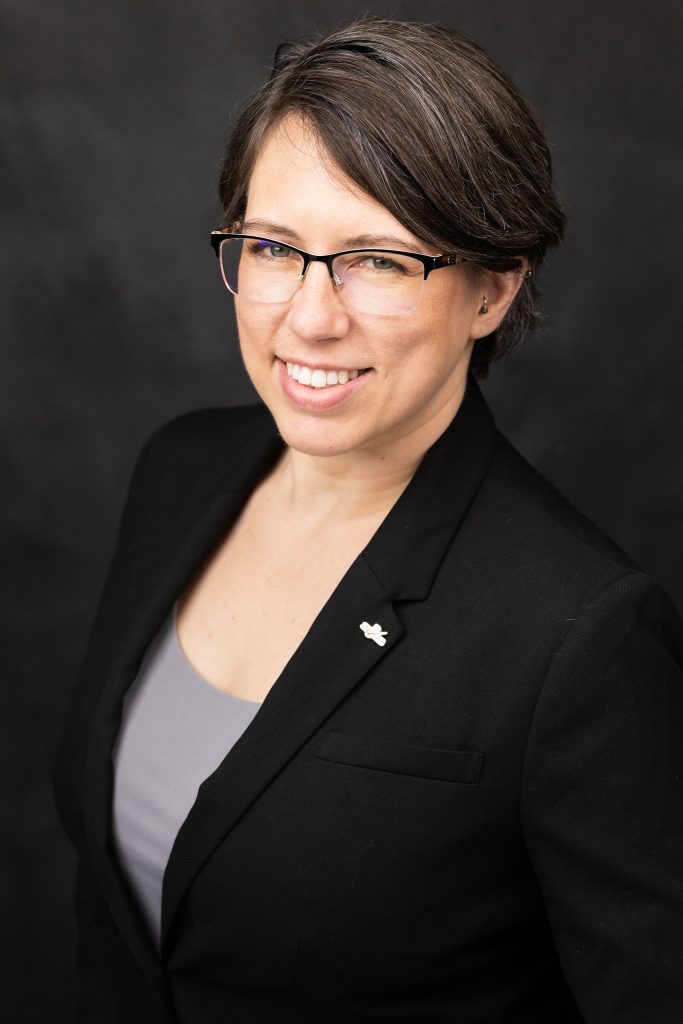

Erica completed her PhD at Drexel University working on the Double Chooz neutrino experiment. She worked on the electronics used to amplify signals detected by the photomultiplier tubes, and also on determining the direction of the neutrino source by studying the reaction dynamics within the detector. Following this, she completed a postdoctoral fellowship at Laurentian University working on the calibration source shielding and much of the hardware development for SNO+. One of Erica’s passions is science communication, and she had created many art projects used to explain complex physical concepts.
In her role now, Erica works on the SNO+, nEXO and HALO projects. She is a detector operator for HALO and also runs SNEWS (supernova early warning system) shifts. For SNO+, she has been the detector manager responsible for keeping things running day to day. Currently Erica is the co-convenor of the Run Quality group, and active member of the Calibration group. She spends a lot of her time writing code for SNO+ to analyze the data produced. On nEXO, Erica is working on developing the test facility to support the Outer Detector. This will turn the muon veto tank into an active water cherenkov detector of its own.
How would you describe your work in simple terms?
“I study neutrinos, the smallest particles we can detect, which behave differently than every other particle we know of. Understanding neutrinos can help us understand the world around us. They are weird, and bend or break a lot of previously held physics rules, which makes them fascinating. Our neutrino experiments consist of giant detectors, often in remote locations, which take hundreds of people to run, and last for a decade or more.”
Why did you choose physics?
“I love understanding things in a deep way, especially the world around us.”
What is something about your work that might surprise people?
“Being a physicist isn’t just about being smart, but about being curious, and not giving up when the problem in front of you looks insurmountable. Science is truly a creative endeavour. Research is about trying to answer questions that no one has answered before. Part of that is coming up with the tools, and developing better questions as we go along.”
Publications
Links
Contact details
erica.caden@snolab.ca
(705) 692-7000 X 2253